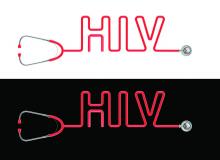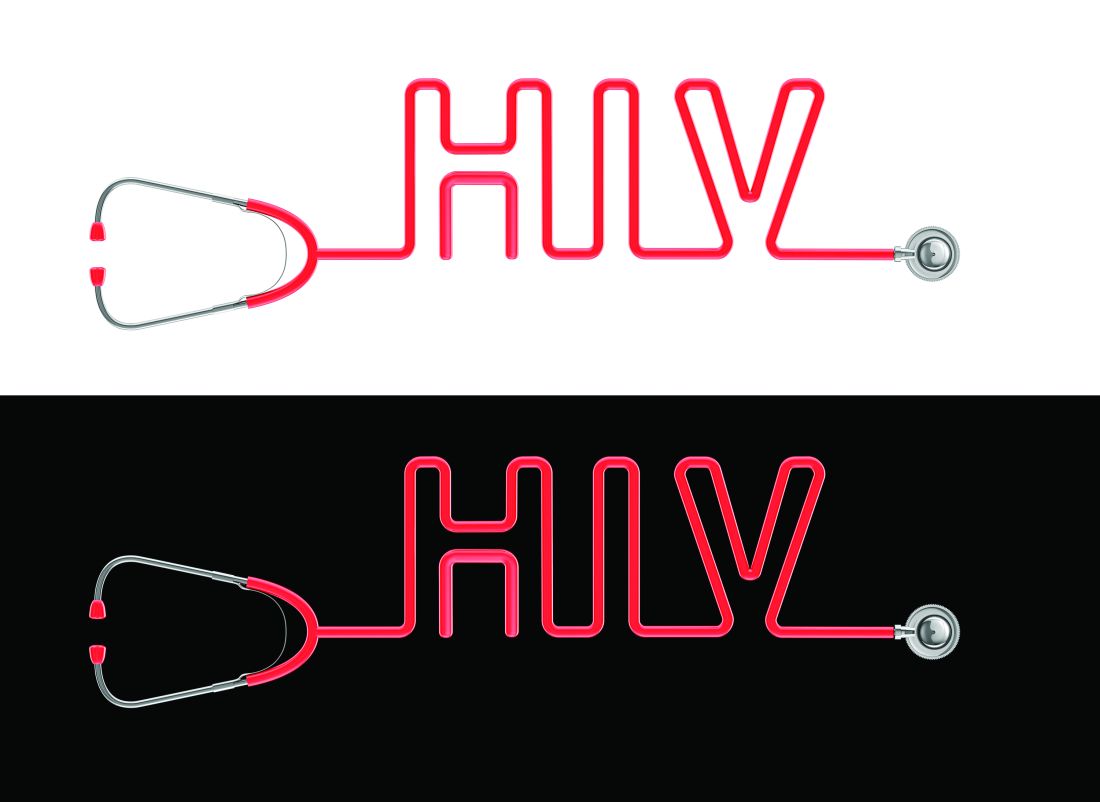User login
Adding a synbiotic (supplement that contains both pre- and probiotics) to nutritional treatment didn’t significantly beat placebo at reducing gastrointestinal symptoms in patients with HIV/AIDS, a small Brazilian study showed.
The human immunodeficiency virus targets the intestinal immune system, causing gastrointestinal symptoms such as diarrhea, nausea, heartburn, and constipation. Antiretroviral therapy (ART) may exacerbate those symptoms, potentially leading to poor medication adherence and discontinued treatment.
The randomized, double-blind PRECOR-NUT (Treatment With Nutritional Eating Plan and Dietary Fibers in Adult Patients With HIV/AIDS) trial assessed a synbiotic’s ability to reduce gastrointestinal symptoms such as diarrhea and nausea. A total of 64 patients living with HIV/AIDS, taking ART, and experiencing gastrointestinal symptoms were randomized to nutritional treatment paired with either a synbiotic or with placebo. Synbiotic patients took two sachets daily containing fructooligosaccharides, Lactobacillus paracasei, Lactobacillus rhamnosus, Lactobacillus acidophilus, and Bifidobacterium lactis. Both patient groups received nutritional counseling.
Compared with baseline, synbiotic patients saw significant reductions in diarrhea (21.8%), nausea and/or vomiting (28.8%), constipation (13.2%), and dyspepsia (24.5%). Placebo patients saw significant declines from baseline in diarrhea and heartburn (52.8% and 14.8%, respectively).
However, there were no significant differences in symptom reduction between synbiotic and placebo patients for any symptom except heartburn, in which placebo patients experienced a greater decrease.
“Although statistical significance is not observed in some occasions in the present study, the changes in the incidence of gastrointestinal disorders implies substantial benefit for HIV/AIDS patients,” the researchers asserted. The symptom improvements may lead to “better adherence to the pharmacological treatment.”
The Brazilian National Scientific and Technological Development Council and the state of Goias Foundation for Research Support funded the study. SKL Functional Nutrition provided the synbiotic. The study authors had no conflicts of interest.
This story was updated on 10/19/2017.
Adding a synbiotic (supplement that contains both pre- and probiotics) to nutritional treatment didn’t significantly beat placebo at reducing gastrointestinal symptoms in patients with HIV/AIDS, a small Brazilian study showed.
The human immunodeficiency virus targets the intestinal immune system, causing gastrointestinal symptoms such as diarrhea, nausea, heartburn, and constipation. Antiretroviral therapy (ART) may exacerbate those symptoms, potentially leading to poor medication adherence and discontinued treatment.
The randomized, double-blind PRECOR-NUT (Treatment With Nutritional Eating Plan and Dietary Fibers in Adult Patients With HIV/AIDS) trial assessed a synbiotic’s ability to reduce gastrointestinal symptoms such as diarrhea and nausea. A total of 64 patients living with HIV/AIDS, taking ART, and experiencing gastrointestinal symptoms were randomized to nutritional treatment paired with either a synbiotic or with placebo. Synbiotic patients took two sachets daily containing fructooligosaccharides, Lactobacillus paracasei, Lactobacillus rhamnosus, Lactobacillus acidophilus, and Bifidobacterium lactis. Both patient groups received nutritional counseling.
Compared with baseline, synbiotic patients saw significant reductions in diarrhea (21.8%), nausea and/or vomiting (28.8%), constipation (13.2%), and dyspepsia (24.5%). Placebo patients saw significant declines from baseline in diarrhea and heartburn (52.8% and 14.8%, respectively).
However, there were no significant differences in symptom reduction between synbiotic and placebo patients for any symptom except heartburn, in which placebo patients experienced a greater decrease.
“Although statistical significance is not observed in some occasions in the present study, the changes in the incidence of gastrointestinal disorders implies substantial benefit for HIV/AIDS patients,” the researchers asserted. The symptom improvements may lead to “better adherence to the pharmacological treatment.”
The Brazilian National Scientific and Technological Development Council and the state of Goias Foundation for Research Support funded the study. SKL Functional Nutrition provided the synbiotic. The study authors had no conflicts of interest.
This story was updated on 10/19/2017.
Adding a synbiotic (supplement that contains both pre- and probiotics) to nutritional treatment didn’t significantly beat placebo at reducing gastrointestinal symptoms in patients with HIV/AIDS, a small Brazilian study showed.
The human immunodeficiency virus targets the intestinal immune system, causing gastrointestinal symptoms such as diarrhea, nausea, heartburn, and constipation. Antiretroviral therapy (ART) may exacerbate those symptoms, potentially leading to poor medication adherence and discontinued treatment.
The randomized, double-blind PRECOR-NUT (Treatment With Nutritional Eating Plan and Dietary Fibers in Adult Patients With HIV/AIDS) trial assessed a synbiotic’s ability to reduce gastrointestinal symptoms such as diarrhea and nausea. A total of 64 patients living with HIV/AIDS, taking ART, and experiencing gastrointestinal symptoms were randomized to nutritional treatment paired with either a synbiotic or with placebo. Synbiotic patients took two sachets daily containing fructooligosaccharides, Lactobacillus paracasei, Lactobacillus rhamnosus, Lactobacillus acidophilus, and Bifidobacterium lactis. Both patient groups received nutritional counseling.
Compared with baseline, synbiotic patients saw significant reductions in diarrhea (21.8%), nausea and/or vomiting (28.8%), constipation (13.2%), and dyspepsia (24.5%). Placebo patients saw significant declines from baseline in diarrhea and heartburn (52.8% and 14.8%, respectively).
However, there were no significant differences in symptom reduction between synbiotic and placebo patients for any symptom except heartburn, in which placebo patients experienced a greater decrease.
“Although statistical significance is not observed in some occasions in the present study, the changes in the incidence of gastrointestinal disorders implies substantial benefit for HIV/AIDS patients,” the researchers asserted. The symptom improvements may lead to “better adherence to the pharmacological treatment.”
The Brazilian National Scientific and Technological Development Council and the state of Goias Foundation for Research Support funded the study. SKL Functional Nutrition provided the synbiotic. The study authors had no conflicts of interest.
This story was updated on 10/19/2017.
FROM CLINICAL NUTRITION
Key clinical point:
Major finding: Adding a synbiotic to nutritional treatment didn’t significantly beat placebo at reducing gastrointestinal symptoms in patients with HIV/AIDS.
Data source: A randomized, double-blind trial with 64 patients.
Disclosures: The Brazilian National Scientific and Technological Development Council and the state of Goias Foundation for Research Support funded the study. SKL Functional Nutrition provided the synbiotic. The study authors had no conflicts of interest.

